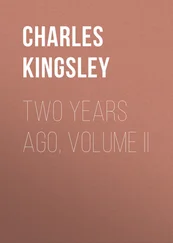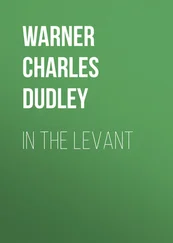Charles Warner - The Gilded Age / A tale of today
Здесь есть возможность читать онлайн «Charles Warner - The Gilded Age / A tale of today» весь текст электронной книги совершенно бесплатно (целиком полную версию без сокращений). В некоторых случаях можно слушать аудио, скачать через торрент в формате fb2 и присутствует краткое содержание. Год выпуска: 2004, Жанр: Классическая проза, на английском языке. Описание произведения, (предисловие) а так же отзывы посетителей доступны на портале библиотеки ЛибКат.
- Название:The Gilded Age / A tale of today
- Автор:
- Жанр:
- Год:2004
- ISBN:нет данных
- Рейтинг книги:3 / 5. Голосов: 1
-
Избранное:Добавить в избранное
- Отзывы:
-
Ваша оценка:
- 60
- 1
- 2
- 3
- 4
- 5
The Gilded Age / A tale of today: краткое содержание, описание и аннотация
Предлагаем к чтению аннотацию, описание, краткое содержание или предисловие (зависит от того, что написал сам автор книги «The Gilded Age / A tale of today»). Если вы не нашли необходимую информацию о книге — напишите в комментариях, мы постараемся отыскать её.
The Gilded Age / A tale of today — читать онлайн бесплатно полную книгу (весь текст) целиком
Ниже представлен текст книги, разбитый по страницам. Система сохранения места последней прочитанной страницы, позволяет с удобством читать онлайн бесплатно книгу «The Gilded Age / A tale of today», без необходимости каждый раз заново искать на чём Вы остановились. Поставьте закладку, и сможете в любой момент перейти на страницу, на которой закончили чтение.
Интервал:
Закладка:
One day he had an offer from some country friends, who believed in him, to take charge of a provincial daily newspaper, and he went to consult Mr. Gringo—Gringo who years ago managed the Atlas—about taking the situation.
"Take it of course," says Gringo, "take anything that offers, why not?"
"But they want me to make it an opposition paper."
"Well, make it that. That party is going to succeed, it's going to elect the next president."
"I don't believe it," said Philip, stoutly, "its wrong in principle, and it ought not to succeed, but I don't see how I can go for a thing I don't believe in."
"O, very well," said Gringo, turning away with a shade of contempt, "you'll find if you are going into literature and newspaper work that you can't afford a conscience like that."
But Philip did afford it, and he wrote, thanking his friends, and declining because he said the political scheme would fail, and ought to fail. And he went back to his books and to his waiting for an opening large enough for his dignified entrance into the literary world.
It was in this time of rather impatient waiting that Philip was one morning walking down Broadway with Henry Brierly. He frequently accompanied Henry part way down town to what the latter called his office in Broad Street, to which he went, or pretended to go, with regularity every day. It was evident to the most casual acquaintance that he was a man of affairs, and that his time was engrossed in the largest sort of operations, about which there was a mysterious air. His liability to be suddenly summoned to Washington, or Boston or Montreal or even to Liverpool was always imminent. He never was so summoned, but none of his acquaintances would have been surprised to hear any day that he had gone to Panama or Peoria, or to hear from him that he had bought the Bank of Commerce.
The two were intimate at that time,—they had been classmates—and saw a great deal of each other. Indeed, they lived together in Ninth Street, in a boarding-house, there, which had the honor of lodging and partially feeding several other young fellows of like kidney, who have since gone their several ways into fame or into obscurity.
It was during the morning walk to which reference has been made that Henry Brierly suddenly said, "Philip, how would you like to go to St. Jo?"
"I think I should like it of all things," replied Philip, with some hesitation, "but what for."
"Oh, it's a big operation. We are going, a lot of us, railroad men, engineers, contractors. You know my uncle is a great railroad man. I've no doubt I can get you a chance to go if you'll go."
"But in what capacity would I go?"
"Well, I'm going as an engineer. You can go as one."
"I don't know an engine from a coal cart."
"Field engineer, civil engineer. You can begin by carrying a rod, and putting down the figures. It's easy enough. I'll show you about that. We'll get Trautwine and some of those books."
"Yes, but what is it for, what is it all about?"
"Why don't you see? We lay out a line, spot the good land, enter it up, know where the stations are to be, spot them, buy lots; there's heaps of money in it. We wouldn't engineer long."
"When do you go?" was Philip's next question, after some moments of silence.
"To-morrow. Is that too soon?"
"No, its not too soon. I've been ready to go anywhere for six months. The fact is, Henry, that I'm about tired of trying to force myself into things, and am quite willing to try floating with the stream for a while, and see where I will land. This seems like a providential call; it's sudden enough."
The two young men who were by this time full of the adventure, went down to the Wall street office of Henry's uncle and had a talk with that wily operator. The uncle knew Philip very well, and was pleased with his frank enthusiasm, and willing enough to give him a trial in the western venture. It was settled therefore, in the prompt way in which things are settled in New York, that they would start with the rest of the company next morning for the west.
On the way up town these adventurers bought books on engineering, and suits of India-rubber, which they supposed they would need in a new and probably damp country, and many other things which nobody ever needed anywhere.
The night was spent in packing up and writing letters, for Philip would not take such an important step without informing his friends. If they disapprove, thought he, I've done my duty by letting them know. Happy youth, that is ready to pack its valise, and start for Cathay on an hour's notice.
"By the way," calls out Philip from his bed-room, to Henry, "where is St. Jo.?"
"Why, it's in Missouri somewhere, on the frontier I think. We'll get a map."
"Never mind the map. We will find the place itself. I was afraid it was nearer home."
Philip wrote a long letter, first of all, to his mother, full of love and glowing anticipations of his new opening. He wouldn't bother her with business details, but he hoped that the day was not far off when she would see him return, with a moderate fortune, and something to add to the comfort of her advancing years.
To his uncle he said that he had made an arrangement with some New York capitalists to go to Missouri, in a land and railroad operation, which would at least give him a knowledge of the world and not unlikely offer him a business opening. He knew his uncle would be glad to hear that he had at last turned his thoughts to a practical matter.
It was to Ruth Bolton that Philip wrote last. He might never see her again; he went to seek his fortune. He well knew the perils of the frontier, the savage state of society, the lurking Indians and the dangers of fever. But there was no real danger to a person who took care of himself. Might he write to her often and, tell her of his life. If he returned with a fortune, perhaps and perhaps. If he was unsuccessful, or if he never returned—perhaps it would be as well. No time or distance, however, would ever lessen his interest in her. He would say good-night, but not good-bye.
In the soft beginning of a Spring morning, long before New York had breakfasted, while yet the air of expectation hung about the wharves of the metropolis, our young adventurers made their way to the Jersey City railway station of the Erie road, to begin the long, swinging, crooked journey, over what a writer of a former day called a causeway of cracked rails and cows, to the West.
CHAPTER XIII.
Rail—Road Contractors and Party Traveling—Philip and Harry form the Acquaintance of Col Sellers
What ever to say be toke in his entente,
his langage was so fayer & pertynante,
yt semeth unto manys herying not only the worde,
but veryly the thyng.
Caxton's Book of Curtesye.
In the party of which our travelers found themselves members, was Duff Brown, the great railroad contractor, and subsequently a well-known member of Congress; a bluff, jovial Bost'n man, thick-set, close shaven, with a heavy jaw and a low forehead—a very pleasant man if you were not in his way. He had government contracts also, custom houses and dry docks, from Portland to New Orleans, and managed to get out of congress, in appropriations, about weight for weight of gold for the stone furnished.
Associated with him, and also of this party, was Rodney Schaick, a sleek New York broker, a man as prominent in the church as in the stock exchange, dainty in his dress, smooth of speech, the necessary complement of Duff Brown in any enterprise that needed assurance and adroitness.
It would be difficult to find a pleasanter traveling party, one that shook off more readily the artificial restraints of Puritanic strictness, and took the world with good-natured allowance. Money was plenty for every attainable luxury, and there seemed to be no doubt that its supply would continue, and that fortunes were about to be made without a great deal of toil. Even Philip soon caught the prevailing spirit; Barry did not need any inoculation, he always talked in six figures. It was as natural for the dear boy to be rich as it is for most people to be poor.
Читать дальшеИнтервал:
Закладка:
Похожие книги на «The Gilded Age / A tale of today»
Представляем Вашему вниманию похожие книги на «The Gilded Age / A tale of today» списком для выбора. Мы отобрали схожую по названию и смыслу литературу в надежде предоставить читателям больше вариантов отыскать новые, интересные, ещё непрочитанные произведения.
Обсуждение, отзывы о книге «The Gilded Age / A tale of today» и просто собственные мнения читателей. Оставьте ваши комментарии, напишите, что Вы думаете о произведении, его смысле или главных героях. Укажите что конкретно понравилось, а что нет, и почему Вы так считаете.












